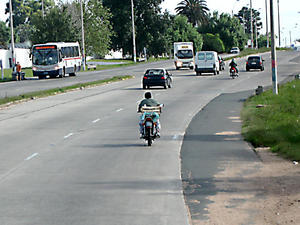Fort Lauderdale criminal defense lawyers have long known that eyewitness identifications in criminal cases are fraught with all kinds of potential problems. Setting aside those who have motivation to lie, memory errors are a major issue when someone’s reputation and future is at stake.

Extensive research by legal and psychology scholars has made it clear that memory is fallible, subject to suggestion, bias and other outside factors.
So when a criminal case is based in large part on the foundation of eyewitness testimony, defense lawyers have an obligation to carefully question these accounts. In the recent case of Constant v. Florida, Florida’s Third District Court of Appeal reversed a robbery conviction and remanded a case for a new trial, following evidence that there were prosecutorial errors in the single-eyewitness case.
Continue reading
 Fort Lauderdale Criminal Attorney Blog
Fort Lauderdale Criminal Attorney Blog












